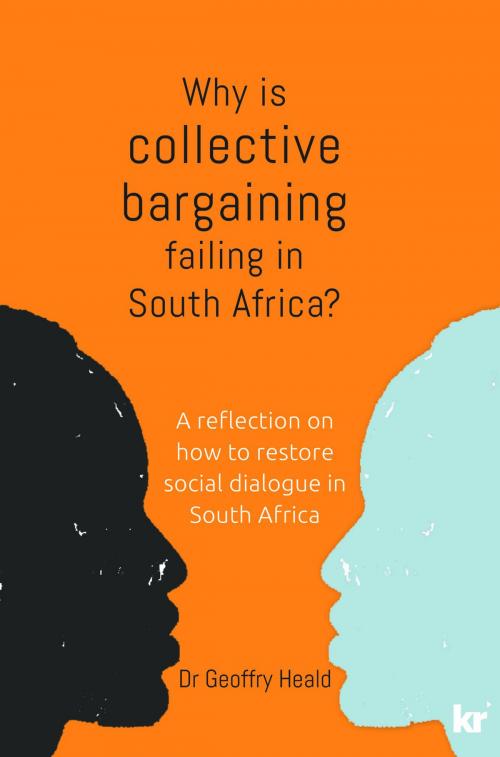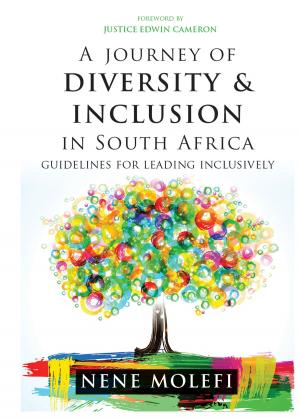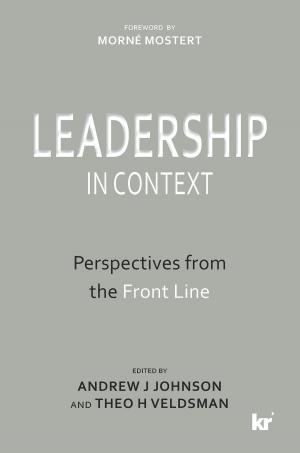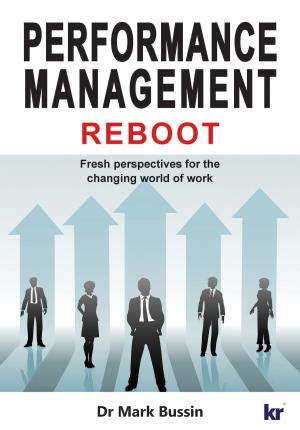Why is Collective Bargaining Failing in South Africa?
A reflection on how to restore social dialogue in South Africa
Business & Finance, Human Resources & Personnel Management, Management & Leadership| Author: | Geoffry Heald | ISBN: | 9781869226558 |
| Publisher: | KR Publishing | Publication: | October 1, 2016 |
| Imprint: | KR Publishing | Language: | English |
| Author: | Geoffry Heald |
| ISBN: | 9781869226558 |
| Publisher: | KR Publishing |
| Publication: | October 1, 2016 |
| Imprint: | KR Publishing |
| Language: | English |
Why is Collective Bargaining Failing in South Africa? offers an extensive analysis of the current nature of collective bargaining in South Africa. Collective bargaining is failing in South Africa because the parties to the process have failed to seek ways of achieving inclusive social development and of balancing the requirements of a competitive economy, the imperative for employment creation and the achievement of an ecologically sustainable environment. This means that many of the inequalities in the labour market that were created by apartheid remain unaddressed.
Dr Geoffry Heald is a senior lecture in negotiation at Wits Business School.
Contents include:
• Business as an Agency for Change in South Africa â€' the Contested Meaning and Purpose of Collective Bargaining
• The Relevance of an Understanding of Normal and Deep-rooted Conflict to Collective Bargaining
• The Disjuncture between Employment Creation and Collective Bargaining in the Fourth Industrial Revolution
• Strikes, Rolling Mass Action and Civil Conflicts as Indicators of South Africa’s Unrest Proneness
• Stakeholder Fragmentation and Collective Bargaining in South Africa â€' the Interaction of Pathologies of Conflict and Poverty
• Implications, opportunities and recommendations.
Dr Geoffry Heald is a senior lecture in negotiation at Wits Business School.
Contents include:
• Business as an Agency for Change in South Africa â€' the Contested Meaning and Purpose of Collective Bargaining
• The Relevance of an Understanding of Normal and Deep-rooted Conflict to Collective Bargaining
• The Disjuncture between Employment Creation and Collective Bargaining in the Fourth Industrial Revolution
• Strikes, Rolling Mass Action and Civil Conflicts as Indicators of South Africa’s Unrest Proneness
• Stakeholder Fragmentation and Collective Bargaining in South Africa â€' the Interaction of Pathologies of Conflict and Poverty
• Implications, opportunities and recommendations.
Why is Collective Bargaining Failing in South Africa? offers an extensive analysis of the current nature of collective bargaining in South Africa. Collective bargaining is failing in South Africa because the parties to the process have failed to seek ways of achieving inclusive social development and of balancing the requirements of a competitive economy, the imperative for employment creation and the achievement of an ecologically sustainable environment. This means that many of the inequalities in the labour market that were created by apartheid remain unaddressed.
Dr Geoffry Heald is a senior lecture in negotiation at Wits Business School.
Contents include:
• Business as an Agency for Change in South Africa â€' the Contested Meaning and Purpose of Collective Bargaining
• The Relevance of an Understanding of Normal and Deep-rooted Conflict to Collective Bargaining
• The Disjuncture between Employment Creation and Collective Bargaining in the Fourth Industrial Revolution
• Strikes, Rolling Mass Action and Civil Conflicts as Indicators of South Africa’s Unrest Proneness
• Stakeholder Fragmentation and Collective Bargaining in South Africa â€' the Interaction of Pathologies of Conflict and Poverty
• Implications, opportunities and recommendations.
Dr Geoffry Heald is a senior lecture in negotiation at Wits Business School.
Contents include:
• Business as an Agency for Change in South Africa â€' the Contested Meaning and Purpose of Collective Bargaining
• The Relevance of an Understanding of Normal and Deep-rooted Conflict to Collective Bargaining
• The Disjuncture between Employment Creation and Collective Bargaining in the Fourth Industrial Revolution
• Strikes, Rolling Mass Action and Civil Conflicts as Indicators of South Africa’s Unrest Proneness
• Stakeholder Fragmentation and Collective Bargaining in South Africa â€' the Interaction of Pathologies of Conflict and Poverty
• Implications, opportunities and recommendations.















